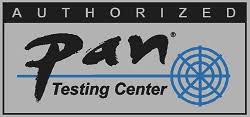Behavioral Interview Using the STAR Method

Situation: Describe the situation that you were in or the task that you needed to accomplish. You must describe a specific event or situation, not a generalized description of what you have done in the past. Be sure to give enough detail for the interviewer to understand. This situation can be from a previous job, from a volunteer experience, or any relevant event.

Task: Describe the task. What you needed to be done and why? What goal were you working toward? In here, you can highlight the challenges, constraints, deadlines, and issues, etc.

Action: Describe the actions you took to address the situation with an appropriate amount of detail and keep the focus on YOU. What specific steps did you take and what was your contribution? In here, you can highlight the Teamwork, Leadership, Initiative, and Integrity, etc.

Result: Describe the outcome of your actions and don’t be shy about taking credit for your behavior. What happened? How did the event end? What did you accomplish? What did you learn? Make sure your answer contains multiple positive results Achievements, Improvements, Cost Saving, Delivery, etc.
The STAR method is a structured manner of responding to a behavioral-based interview question by discussing the specific situation, task, action, and result of the situation you are describing.

Make sure that you follow all parts of the STAR method. Be always as specific as possible, without rambling or including too much information. Oftentimes students must be prompted to include their results, so try to include that without being asked. Also, eliminate any examples that do not paint you in a positive light. However, keep in mind that some examples that have a negative result (such as “lost the game”) can highlight your strengths in the face of adversity.
- Recall recent situations that show favorable behaviors or actions, especially involving course work, work experience, leadership, teamwork, initiative, planning, and customer service.
- Prepare short descriptions of each situation; be ready to give details if asked.
- Be sure each story has a beginning, middle, and an end, i.e., be ready to describe the situation, including the task at hand, your action, and the outcome or result.
- Be sure the outcome or result reflects positively on you (even if the result itself was not favorable).
- Be honest. Don’t embellish or omit any part of the story. The interviewer will find out if your story is built on a weak foundation.
- Be specific. Don’t generalize about several events; give a detailed accounting of one event.
- Vary your examples; don’t take them all from just one area of your life.

SAMPLE BEHAVIORAL INTERVIEW QUESTIONS
- Give me a specific example of a time when you used good judgment and logic in solving a problem.
- Give me an example of a time when you set a goal and were able to meet or achieve it.
- Give me an example of a time when something you tried to accomplish and failed.
- Give me an example of when you showed initiative and took the lead.
- Give me an example of a time when you used your fact-finding skills to solve a problem
- Tell me about a time when you missed an obvious solution to a problem.
- Tell me about a time when you had to go above and beyond the call of duty to get a job done.
- Tell me about a time when you had too many things to do, and you were required to prioritize your tasks.
- Tell me about a recent situation in which you had to deal with a very upset customer or coworker.
- Tell me about a time when you were forced to make an unpopular decision.
- Describe a time when you anticipated potential problems and developed preventive measures.
- Describe a situation in which you were able to use persuasion to successfully convince someone to see things your way.
- Describe a time when you were faced with a stressful situation that demonstrated your coping skills.
5 Reasons why you should us LinkedIn
Ways to Deal with Test-Taking Anxiety

































